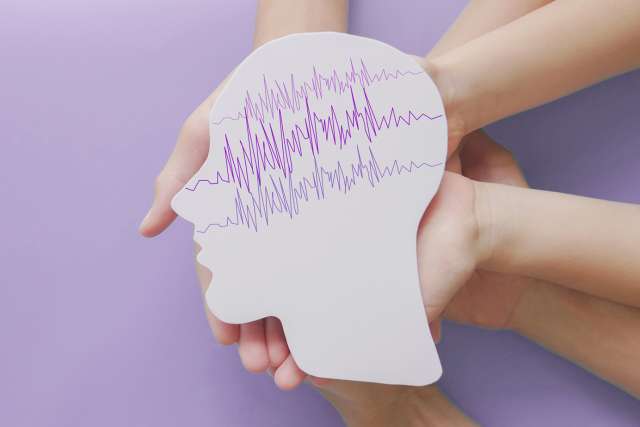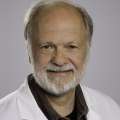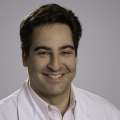Adult Epilepsy
Our epilepsy specialists are experts in diagnosing and treating seizure disorders. We care for hundreds of patients with seizures each year.

Why choose UCLA Health for epilepsy care?
In the UCLA Health Adult Epilepsy Program, we research and treat all types of seizure disorders. We provide world-class care to hundreds of patients each year. Our robust research program combined with exceptional clinical care makes us a top location internationally for epilepsy treatment.
Additional highlights of our program include:
- Team approach to care: An entire team works together to treat patients with seizure disorders. Our team approach combines the expertise of neurologists, neurosurgeons, psychiatrists, psychologists, neuroradiologists and other team members.
- Groundbreaking discoveries: UCLA Health researchers have discovered several devices and therapies for epilepsy treatment. For example, our scientists identified brain wave changes that most consistently point to an epilepsy diagnosis. Our specialists also developed the first stereotactic chronic depth electrode recordings and electroencephalogram (EEG) telemetry, two tools that are now standard worldwide in epilepsy diagnosis.
- Training leaders: Each year, our specialists train multiple fellows in epilepsy care. Many of our fellows go on to become leaders in the national and international epilepsy medical community.
Our services
The Adult Epilepsy Program provides world-class comprehensive inpatient and outpatient services within our neurology department.
Epilepsy program services include:
Outpatient diagnostic clinic
Patients come to this clinic for initial assessments and diagnosis. Experts in all our subspecialty clinics work together so that patients with a seizure diagnosis have access to all available treatment options.
UCLA Health Seizure Disorder Center
Through this center, we care for patients who still have disruptive seizures even after trying two or more medications. Our experts offer alternative treatments, such as dietary changes, surgery or new medications through clinical trials. We aim to see patients soon after failed treatment to help them get the treatment they need right away.
In the Seizure Disorder Center, our team:
- Diagnoses overlooked, treatable conditions
- Determines reasons for previous treatment failure
- Offers alternative treatments, such as neuromodulation, surgery, diet, experimental antiseizure drugs or behavioral therapy
- Provides psychological and social support services
Neurobehavioral Epilepsy Program
Specialists from neurology and psychiatry partner to lead this program. We focus on helping people cope with the anxieties or social challenges of living with a seizure disorder.
Types of seizures we treat
Epilepsy is a condition characterized by recurring seizures that have no other known cause. Seizures occur when there’s a burst of irregular electrical signals in the brain.
Seizures may cause loss of consciousness and involuntary movements. They may also cause more subtle symptoms, such as rapid blinking for less than a minute.
There are two main types of seizures:
Focal seizures
Focal seizures occur on one side of the brain. They often cause aura symptoms, such as feelings of déjà vu, visual changes or changes in hearing. Symptoms may or may not include loss of awareness.
Generalized seizures
Generalized seizures occur in both sides of the brain. They may include:
- Petit mal seizures: These seizures are brief states of changes in your consciousness, but they don’t typically include a loss of consciousness. They may cause rapid blinking or eye twitching. Usually, they last for 30 seconds or less, and the person may not even know they had a seizure.
- Grand mal seizures: These seizures include recognizable symptoms such as loss of consciousness, tremors or muscle contractions. People may feel sleepy, have vision problems or get a headache.
- Atonic seizures: Also called a drop attack, these seizures cause a person to suddenly drop their head or fall from a standing position.
- Myoclonic seizures: These seizures cause repetitive, sudden jerking of specific muscle groups. They usually occur in clusters, meaning they happen several times a day.
Epilepsy treatments we offer
Our epilepsy team provides a full range of diagnostic tools and treatment options. We aim to find an effective treatment plan that works for your lifestyle and needs. At the heart of our program, our goal is to help you find a treatment that enables you to live a seizure-free life.
Diagnosing epilepsy may include:
- Blood tests to assess blood sugar or check for other conditions that could cause seizures
- Imaging tests, such as MRIs or CT scans, to view brain structure and function
- Electroencephalograms (EEGs) to record the brain’s electrical activity
- PET scans to help identify the area of the brain where partial seizures arise
- Spinal tap (lumbar puncture) to test cerebrospinal fluid for infection or other problems that could cause seizures
Treatment may include:
- Medication: Most people take medicines to prevent seizures. Some patients try several medications and doses before finding one that effectively treats seizures. If you have tried two or more drugs without success, an epilepsy specialist may recommend other treatment options.
- Diet changes: Some research shows that certain diet plans can help control seizures in some patients. Specifically, a high-fat, low-carbohydrate diet may be beneficial. You may follow a ketogenic diet, modified Atkins diet, low glycemic index diet or medium-chain triglyceride diet.
- Vagus nerve stimulator (VNS): A VNS is a small device that is surgically implanted in the chest. Its wires connect to one of the large nerve pairs in the neck (vagus nerve). The wires send small electrical impulses to the vagus nerve. These electrical signals may fire consistently throughout the day, or you may activate the VNS at the first sign of a seizure.
- Surgery: Most people with epilepsy don’t need surgery. But in rare cases, surgery can stop the spread of irregular electrical signals in the brain. A neurosurgeon may safely remove a small portion of the brain where seizures occur.
Meet the team
Our team of specialists offers the full spectrum of epilepsy care. We research, diagnose and treat all types of seizure disorders.
Contact us
Call 310-794-1195 to request an appointment with an epilepsy specialist at UCLA Health. To schedule an appointment with the Seizure Disorder Center, please call 424-260-8836.
Director
Faculty


Staff Providers
Find your care
We diagnose and treat the full range of seizure disorders. To schedule an appointment with the Seizure Disorder Center, call 310-794-1195.


















